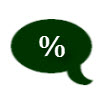Gone are the days of balancing your checkbook by hand or trying to make sense of multiple investment statements. Smartphone apps linked with their web counterparts make the most of your banking and investment information, helping you budget and save along the way.
Here are some of the best:
Mint from Intuit is free, easy to use and lets you view financial data from multiple sources on multiple devices. Mint provides handy tools for planning and budgeting, and alerts you when bills are due however the app cannot access funds nor scheduling outgoing payments. The software is supported by ads based on a user’s activity profile.
Pageonce connects your bill accounts and pays securely from a single location. The app alerts you to bill due dates, overages, late fees, and suspicious activity. Pageonce supports utility companies, credit cards, insurance, phone and thousands of other providers and is free with no ads.
Venmo lets friends send and receive money from each other, eliminating the hassle of exchanging cash or awkward IOUs. There is no fee for receiving money but there is a 3 percent fee to send money, unless you use funds from your existing Venmo balance, a bank transfer, or a valid debit card.
Wikinvest Portfolio Manager, recommended by both Barron’s and Forbes, is free with ads and allows you to track your investment portfolio and follow the markets. It does not allow open access to your accounts, however automatically updates your brokerage holdings nightly. It currently imports data from over 60 brokerages.
Your Bank may already have an app that manages your accounts, deposits your checks by photo, pays bills, makes wire transfers, and moves funds between accounts. Bank apps are usually free without ads.
Other Popular Apps you may want to check out include HelloWallet, Balance, Accounts 2, and if your employer uses Concur for tracking expenses, try the Concur Mobile App.

















